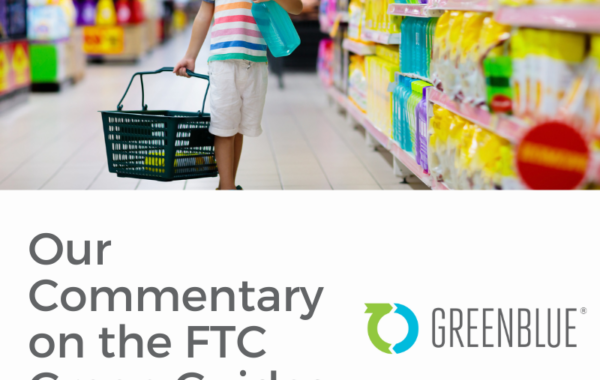April 17, 2020
Revolution, a plastic film collector, recycler, and manufacturer, demonstrated to over 200 SPC Virtual Event attendees that it is possible to have a closed-loop system for plastic films.
As Cherish Miller, Vice President, Corporate Marketing & Communications for Revolution indicated, films can be downcycled and transformed into other products like asphalt, plastic composite lumber for decks or park benches, and even carpet. Miller acknowledged these options can be alternatives for repurposing plastic film and preventing the film from entering landfills, however, putting film back into film applications is the best solution to closing the loop. Even with this high-level work, efforts to comprehensively recycle plastic films within a circular economy are in an ongoing process.
What does a comprehensive closed-loop recycling system look like? Revolution collects, recycles, and manufactures plastic products with up to 97% post-consumer resins. Meaning their entire product line is almost fully derived from secondhand sources like grocery bags, pallet wrap, agricultural cover sheeting, and tubing. Revolution partners with all stakeholders along the value chain; beginning the loop with the scrap haulers, involving the brands and retailers, partnering with recyclers and processors, and engaging with consumers at drop off sites. Later, scrap haulers pick up the material at the drop off sites, closing the loop and continuing the cycle.
Revolution is just one of many companies taking an active role in the effort to close the loop. Miller’s presentation focused on efforts from seven various entities, working to collect, recycle, manufacture, or advocate for plastic film recovery and recycled content. Most of the efforts are programs or initiatives of companies collaborating to increase demand for post-consumer plastic. The scale of the efforts varied from national education and outreach campaigns to direct action by organizations pushing for legislation by signing pledges to use more post-consumer resins.
Recycle More Bags is a call-to-action signed by more than 30 co-signatories including the Northeast Recycling Council (NERC), Closed Loop Partners, Institute of Scrap Recycling Industries (ISRI) and of course, Revolution. Recycle More Bags hopes the collaboration among its co-signatories can help achieve robust self-reliance in North America to recycle plastic bags, a reduction in carbon emissions and plastic litter by using post-consumer resins, and a bolstered circular economy; all through a defined recycled content minimum in government purchasing. Recycle More Bags seeks to use legislation and government agency procurement policies to leverage demand for post-consumer resins. Overall, their signatories are engaging in stakeholder support for “government legislation and procurement policies to require 20% post-consumer recycled (PCR) content in garbage bags and plastic carryout bags by 2025.” If you’re in North America check out Recycle More Bags for more information on how you can help support their mission.
While Recycle More Bags focuses its efforts on engaging government agencies, the Wrap Recycling Action Plan WRAP is aimed at engaging individuals and communities in the United States. WRAP’s measurable goal is to increase plastic film recycling by two billion pounds by 2020. They hope to achieve this by increasing “access to and participation in plastic film recycling for both consumers and businesses”.
WRAP provides outreach materials and resources for individuals to increase film recycling in their communities. For example, WRAP’s website hosts a Drop Off Directory which lists locations by zip code where individuals can drop off films. In addition, WRAP provides communication tool kits, online images or badges for websites, and guides for communities to effectively collect more plastic films (without putting them in the curbside bins). WRAP is a collective effort headed by the Flexible Film Recycling Group of the American Chemistry Council, and the Sustainable Packaging Coalition is a key partner of the program.
Additionally, How2Recycle’s Store Drop-Off label, used by brands and retailers on thousands of packages in the marketplace, support these efforts. The Store Drop-off label clearly communicates to consumers when certain polyethylene film packages like paper towel wrap and produce bags can be recycled via Store Drop-Off collection, along with plastic bags.
There is no one solution for plastic film recovery. The technology exists to create a closed-loop system for plastic films, as demonstrated by Revolution, but the success of these systems depends heavily on collaboration and alignment with other stakeholder groups, including legislation in support of recycled content minimums and community support through drop off locations. Events like SPC Impact Virtual play an important role in disseminating this information and linking the unique sections of the plastic film supply chain. With further collaboration between stakeholders there very well may be a plastic film revolution.
“RECYCLE MORE BAGS.” RECYCLE MORE BAGS. Accessed April 9, 2020. https://www.recyclemorebags.com/.
“About Us.” Plastic Film Recycling. American Chemistry Council. Accessed April 9, 2020. https://www.plasticfilmrecycling.org/about/.





